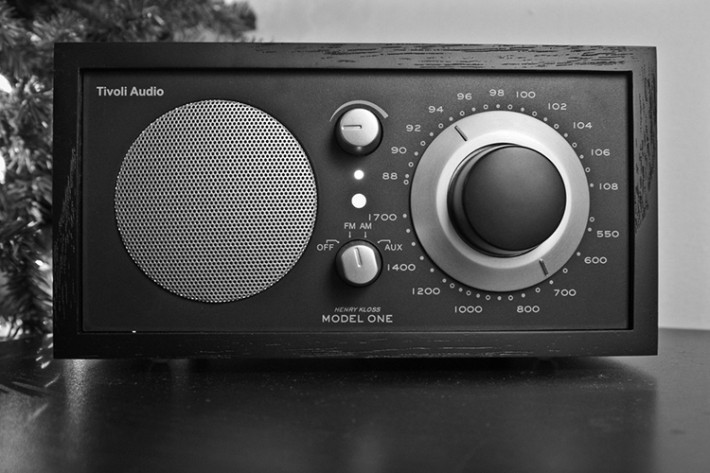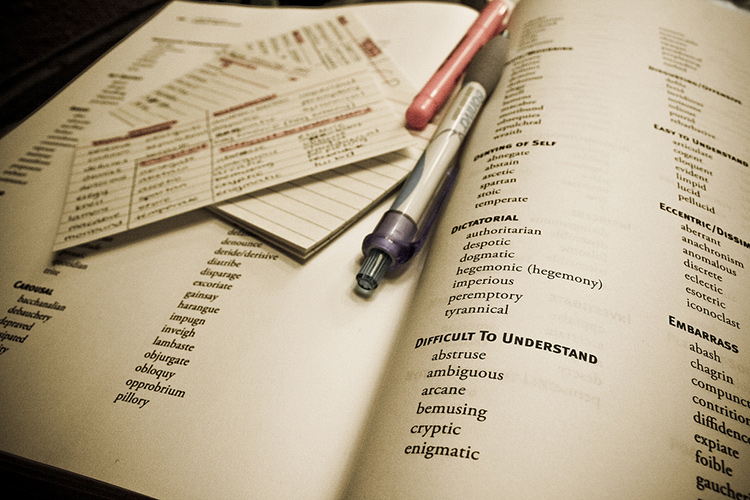Most of the world doesn't speak Japanese. In fact, only 1.8% of the world speaks Japanese, and most of these people live on a series of islands that add up to, approximately, the size of the state of California. If you happen to live outside of this island (statistically, you probably do), then the chances of hearing, speaking, reading, or writing the Japanese language go down quite dramatically. Your opportunities include classes, people you know, the internet, and what you come up with on your own.
This article is about the last bit.
It's so hard to make your brain switch over to "Japanese-mode" without being surrounded by Japanese (all Japanese all the time, some people might say). There certainly is a huge difference between hearing almost only Japanese and hearing just some Japanese. Until it becomes easier for your brain to switch to primarily Japanese, it's just not going to do so on its own. And because for most people creating an "immersion experience" outside of Japan is near impossible, you have to put in a lot of extra work to make things work.
This article is about that too.
There are certain things that I did before we headed back to Japan in February. It turned out that once I was there for a day or two things started clicking back into place (apparently things really go into hibernation in your brain), but the preparation I did helped a lot as well. I thought it would be interesting to share those things with you so that you can try them out too. Depending on your level, some aspects may or may not be helpful, but I'll try to break things down so everyone can get something out of this.
Kanji Learning

It may seem like I'm taking this opportunity to just tout WaniKani, because I am, but it really made a huge difference for me in not only preparing for this trip but also for some of the other practice ideas I have written about below. Really, I can't stress enough how important kanji is. It is the foundation for reading and writing. It will allow you to learn vocabulary much faster. It will even help you with pronunciation and understanding, which trickles down to speaking and listening quite a bit too. Sure, it's the scariest thing out there for most learners, but it's the thing that will get you better at Japanese the fastest, no matter what it is you plan to focus on (reading, speaking, whatever).
I had previously known a lot of kanji and could read a decent amount of vocab, but it was WaniKani that helped me to actually understand kanji and turn it around to work for me (rather than me being a slave to kanji). The amount I was able to read went up very considerably in the last six months, and it has made all other types of studying and comprehension much better, as you'll read about below, I'm sure.
Anyways, no matter what you do, if you're learning Japanese in a non-Japanese speaking world, kanji is going to be your foundation. Always. Whether you want to only learn Japanese to read manga or you want to learn Japanese to talk to people, kanji will accelerate everything by a considerable amount. I'm super biased and WaniKani is obviously the best thing since sliced bread, but even if you don't use WaniKani use something else (kanjidamage, Anki, Remembering The Kanji, to name a few), because kanji is very necessary for fast advancement and understanding of the Japanese language.
The "Constant Translation" Project

For me, it started with the radio. The thing is, when you live with someone else, you aren't going to be able to turn on Japanese audiobooks, podcasts, TV shows, and so on 24/7 for yourself. You have to think about other people when other people are around (shocking, right?), so you have to come up with other ways to "listen" to Japanese during your down time.
In the car, we'd listen to the radio. What I realized is that I could translate things as I heard them. Now the key here is to do things at your level. Some people may be taking phrases and translating them in Japanese. Others may be listening for words they know, then saying them in Japanese. No matter what level you are, though, you can increase your awareness of what's being said on the radio and translate as much as possible in real time.
I think there are two important keys to making this work, though.
- You can't worry about accuracy. Worry more about speed. You aren't writing anything down and you aren't trying to make things perfect. More importantly, you're trying to translate as much as you possibly can as quickly as you can. The goal is to be able to make switches from English to Japanese a lot more quickly, and this will help you to practice that.
- You actually remember to do this drill. Because it's easier for your brain to not do this, you're not going to remember to do this every time the radio, TV, or laser-disk fires up. Training yourself to remember that you need to do this constantly is really important. It will take a week or two before you automatically just attempt to translate everything you hear on the radio as soon as it starts playing. After a while you'll start to notice that many words will go from "kind of knew" to "knows really well" status. As you learn more and more words from learning kanji (see above), you'll be able to recall words a lot more easily which is very important to speaking and listening.
Talking To Yourself

I already talked about this in the past, so I'll let you go read about "Practicing Japanese To Insanity" on your own. I just wanted to add a couple of things that I focused on in the months leading up to February.
- As you go through the day, collect useful words you've learned. I put them in Evernote, but put yours wherever you want. Then, when you're talking to yourself, try to remember the words you're supposed to use (review them a bit before starting, but don't look while you're talking because that won't help) and use them. The act of recalling these words on your own will help you to recall them the next time you actually need them.
- If you learn new grammar throughout the day, also try to use that in much the same way as the previous bullet point.
- Try to do different emotions. I would go from angry to unsure to polite to happy. It's interesting and mixes things up, plus speaking with emotion is more natural than speaking without it. When you can, talk to yourself. Also, add a little structure to it, which involves just using the things you've learned recently to help with recall.
Frequency Word Lists

Not worrying as much about the kanji, there are some good word-frequency lists out there. I took a list, edited it a bit, and then put it into a spreadsheet which I printed out. Thirty pages later, I had approximately 10,000 frequent words ordered (with many not-so-well-ordered sections) by frequency of use. Wrapping back around to part one of this article, all that WaniKani really helped a lot with this, because, well, there was a lot of kanji.
With this printout, I went through it crossing out words I already knew well. Because I made the mistake of using a sharpie and because I knew almost everything a good number of pages in, I switched to highlighting what I didn't know instead. Sharpies are pretty "pungent." Do whatever works for you. Using a list like this, you know you're studying the most useful words first, though it's pretty hard to do without a good kanji foundation, so I'd recommend that first. You can then whittle away the things you don't know, moving closer and closer to obscurity.
I would spend a bit of time with this every day and it helped remind me of common words, helped me to learn new ones, and came in handy during listening. There would be words that would come up in conversation and I'd go… "Hmm, I've seen that somewhere, oh yeah, it's that word." Context helps a lot here too. But, studying like this will give you a lot of benefit for a very small amount of time, something that gives you a big advantage when you're living in a non-Japanese speaking part of the world.
Reading, A Lot

Reading, of course, also played a big part in my preparations. Mainly I read blogs, since they were written in a more "conversational" manner, but I also read articles too. I found that Readability + iPad worked pretty well, at least in terms of turning terribly formatted Japanese websites into readable ones. The thing about reading is that 1) you need kanji knowledge (always coming back to part 1), and 2) you get exposed to a lot of grammar, slang, and vocabulary words. Reading a lot means you get a lot of that, and it makes you better exponentially over time.
Just reading for a day or two does nothing. Even a week barely will feel like you've gotten better. Read for an hour or two a day for a month, though, and you'll get way better at not just reading, but understanding and speaking as well. Reading will help you to recall better, and recalling is important for everything.
What Do You Do?
In a non-Japanese speaking world, what do you do to get better? Sometimes it takes some creativity. More often it just takes a lot of force and hardheadedness. I think a mixture of the two works quite well, but what about you?
